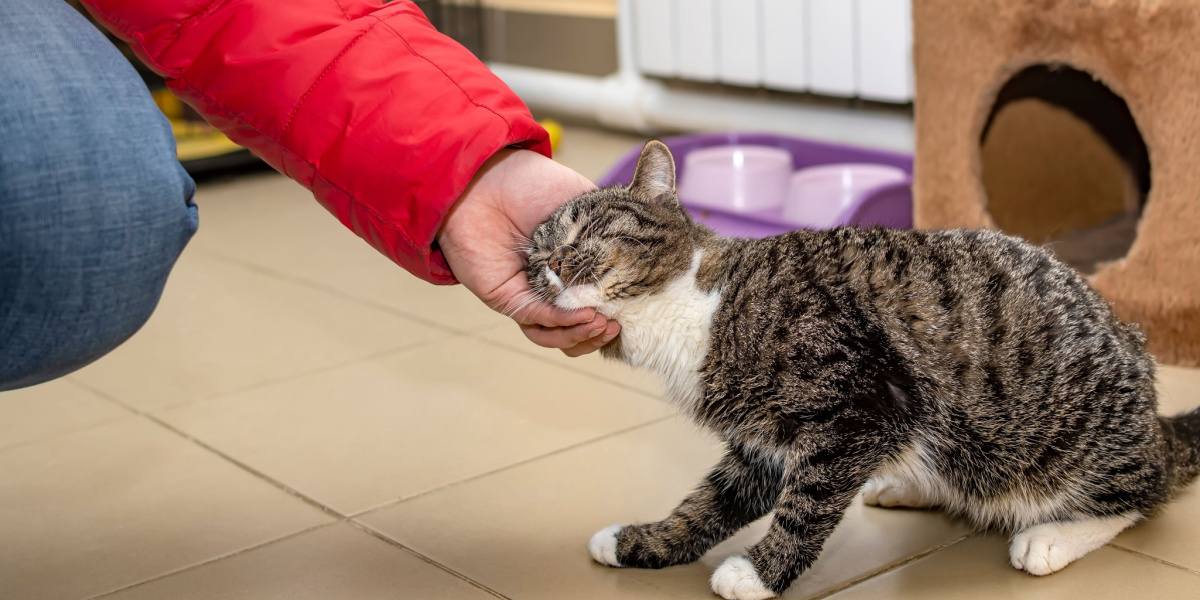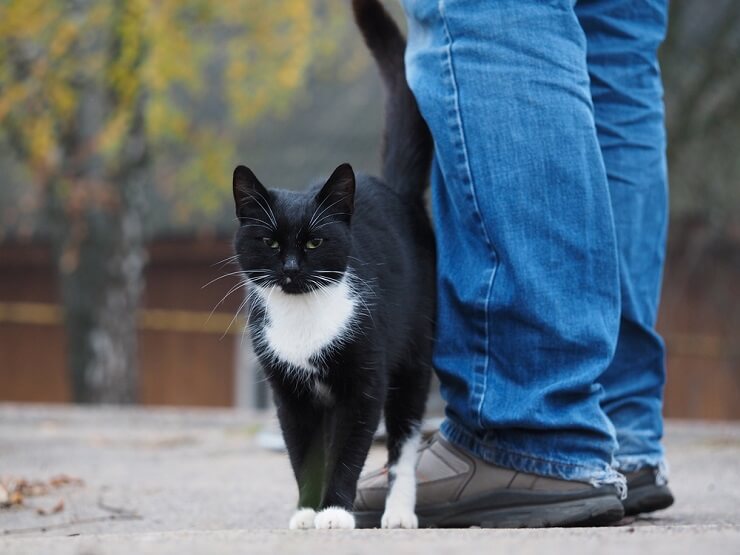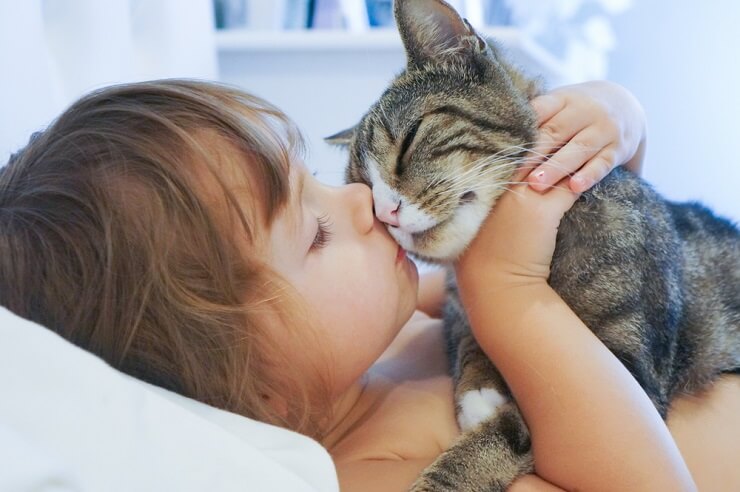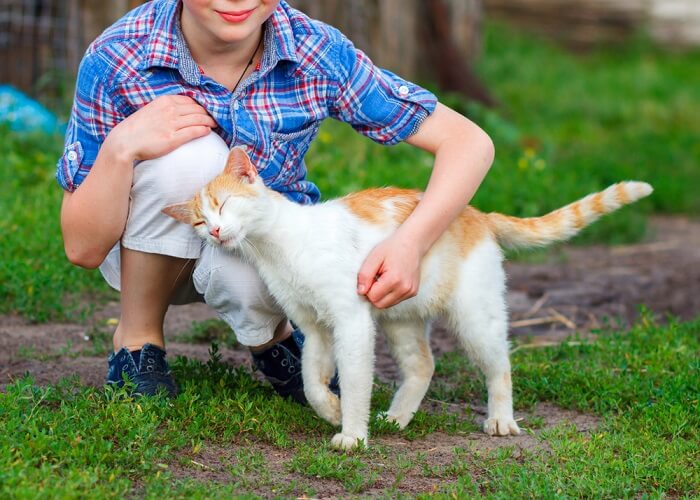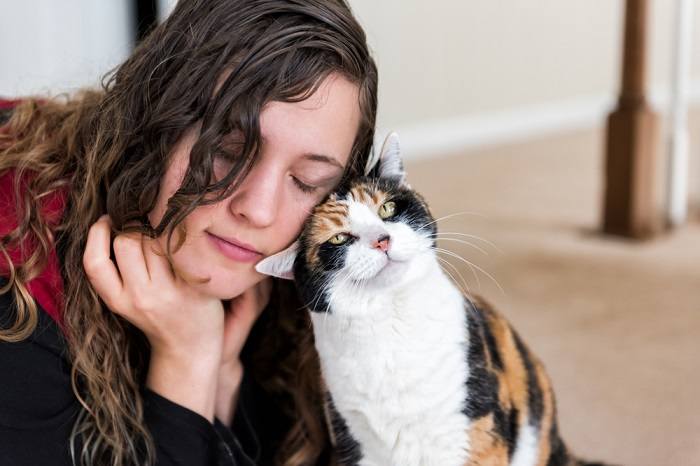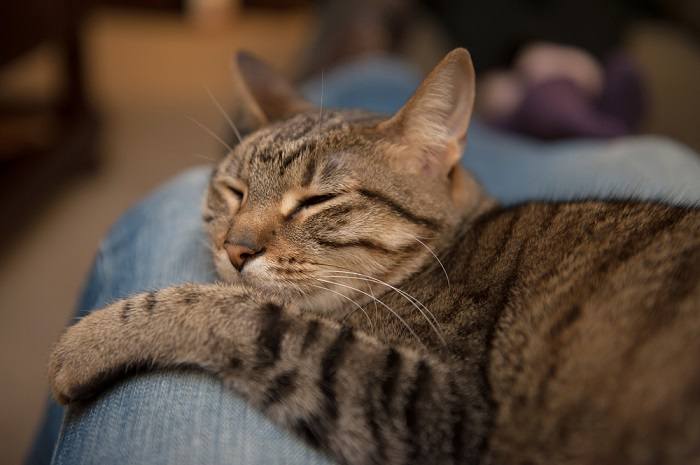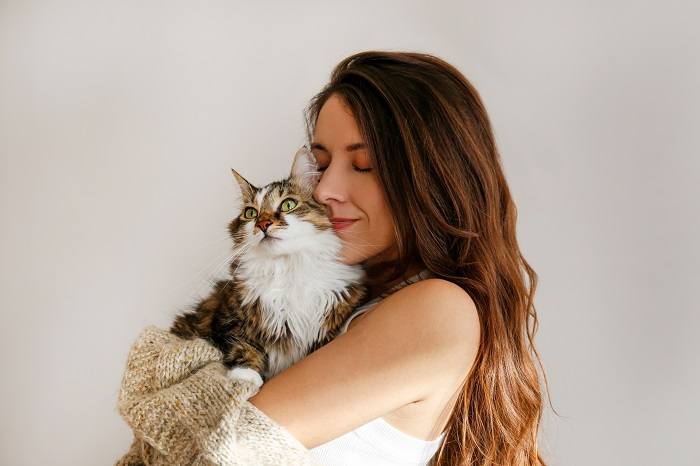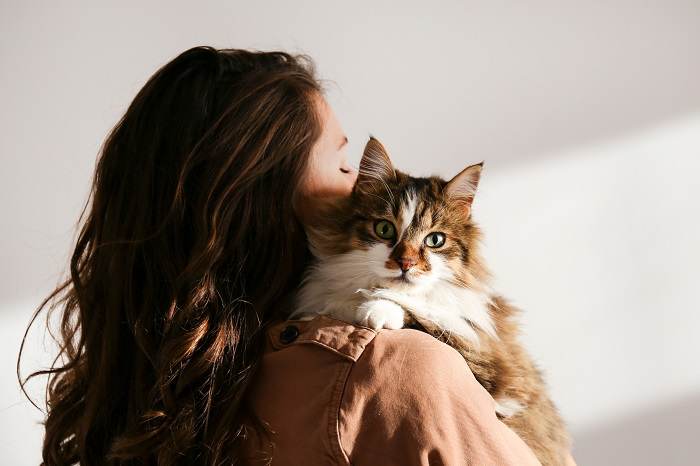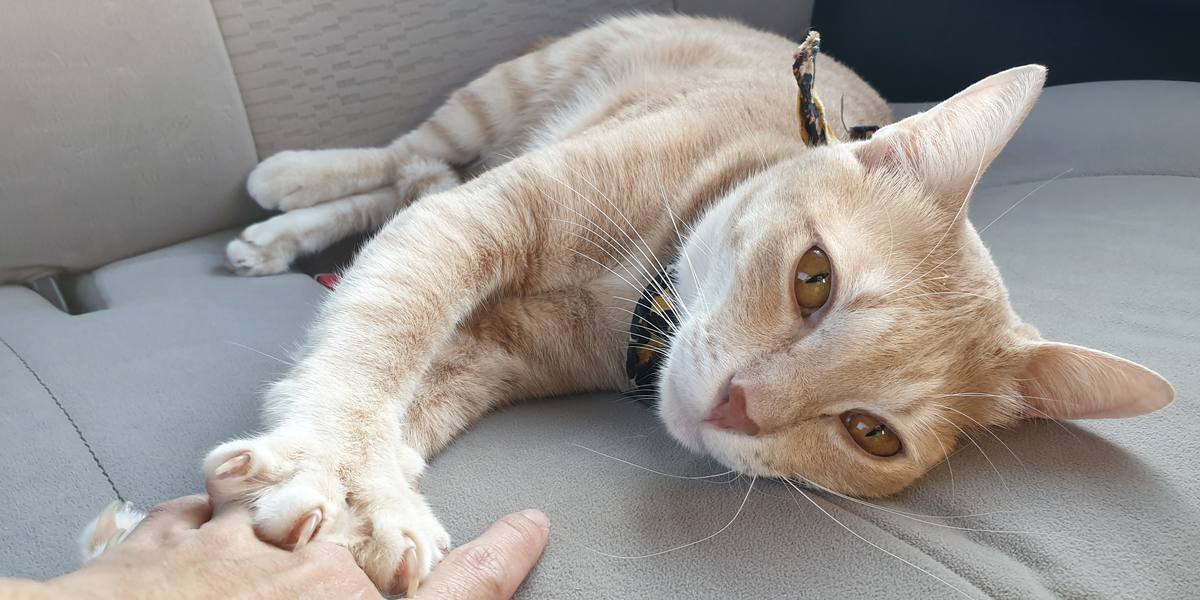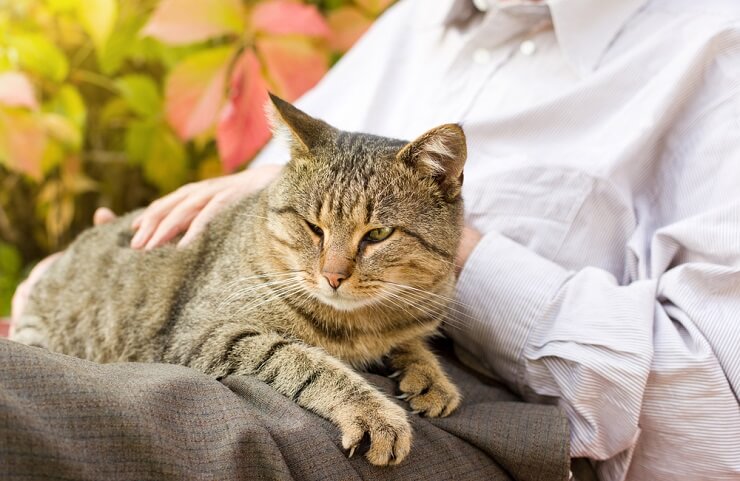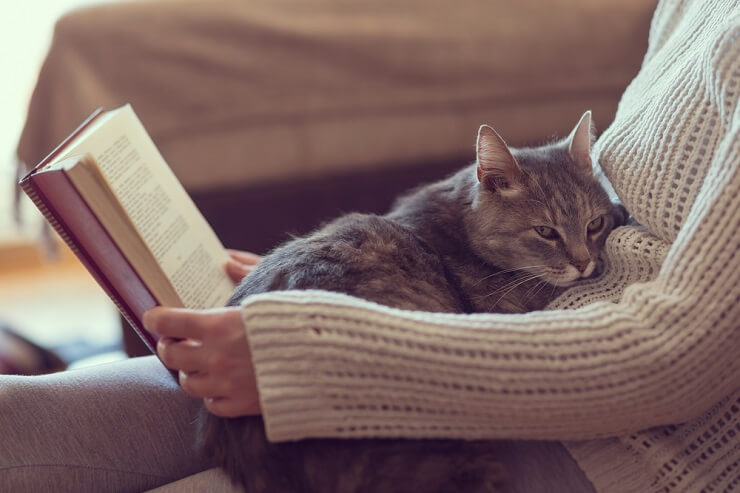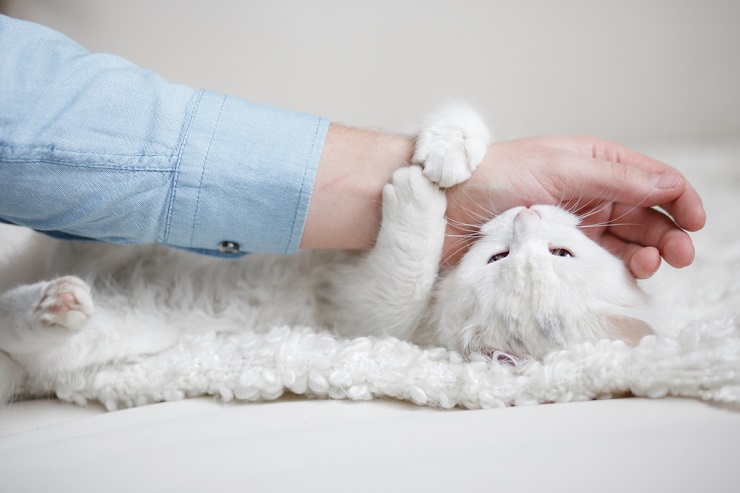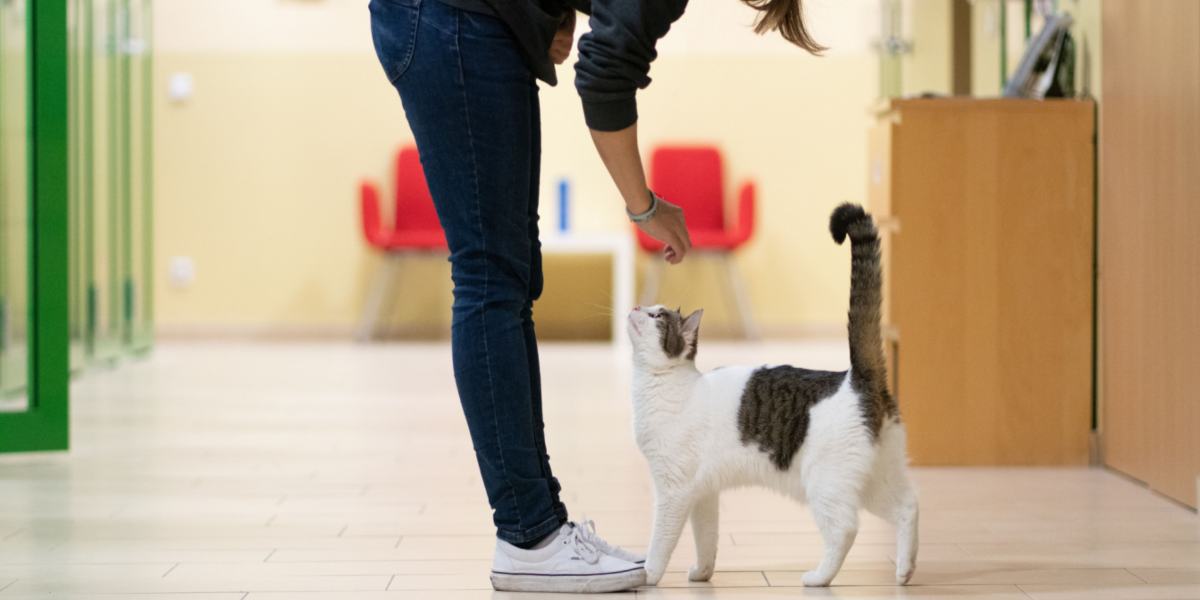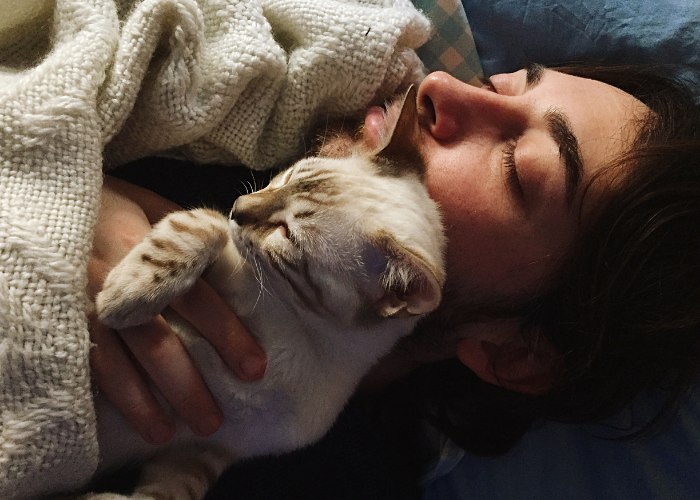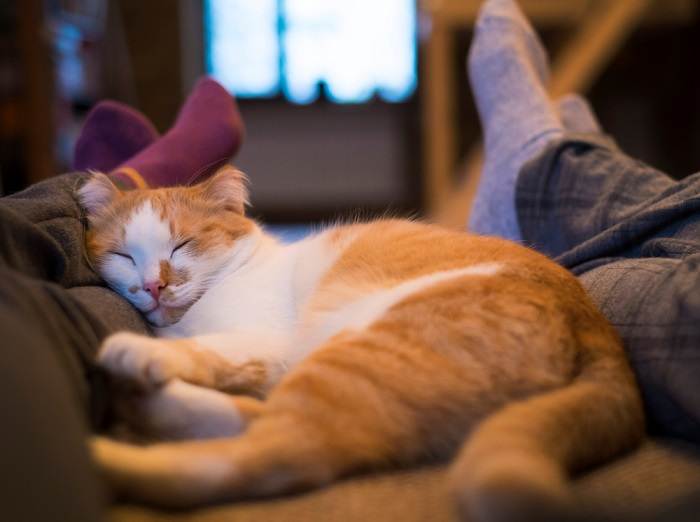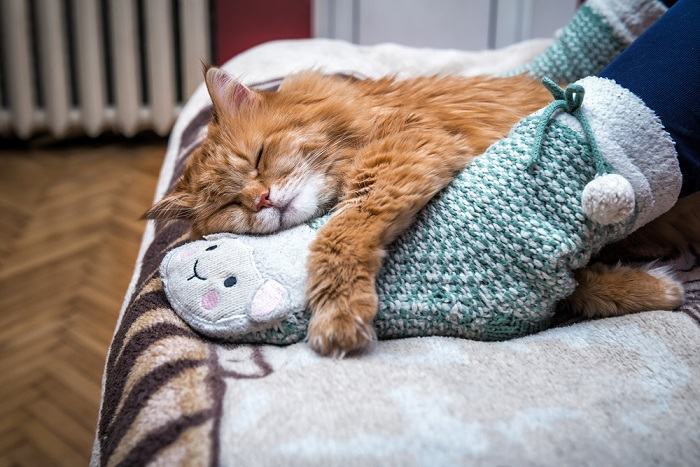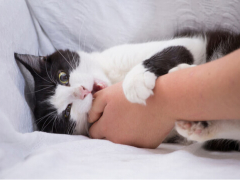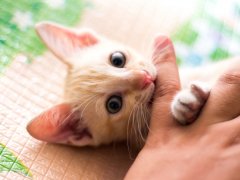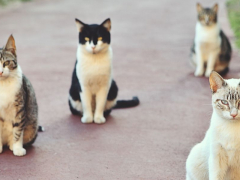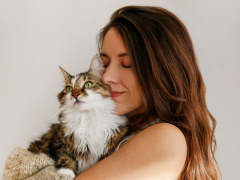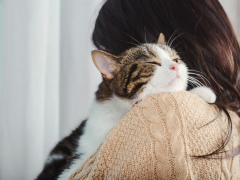If you’re new to being a cat owner, you might be surprised at how often cats headbutt, and that it’s actually a good thing! Let’s find out about cat headbutting, what it is, what it means, and other similar cat behaviors.
Cat headbutting, also known as head bunting, is when a cat places their forehead against you and rubs their face along your body. Cats usually headbutt to show affection, to scent mark, or to seek your attention. Cats sometimes follow up headbutting with a gentle or playful nibble, which is not meant to hurt and is a sign of affection.Key Takeaways
What Is Cat Headbutting?
Cat headbutting, also known as head bunting, is when a cat places their forehead against you and rubs their face along parts of your body, often the side of your face to your ear. They often repeat this action over and over again, head pressing while purring and kneading with their paws. But why do they do this? And what does it mean?
Why Do Cats Headbutt?
1. They’re Scent-Marking
Cats headbutt to deposit pheromones from the scent glands found on their face and lips.
Cats have scent glands all over their body, with the largest numbers on their face, lips, paws, and tail base. When they rub their face against you, they’re transferring their unique pheromones onto you. This scent lets other cats know that you belong to them, but also makes you smell familiar, which is reassuring to them.
This scent communication occurs in the wild, too, with cats using their group scent to communicate with each other.
Also Read: How Do Cats Mark Their Territory?
2. You’re Their Favorite
If you’re getting a lot of headbutts and cuddles, you’re probably your cat’s favorite person.
Cats often choose a favorite person or favorite people. These are usually family members because these are the people who they spend the most time with and have the closest bond with. The cat’s favorite person will get the most love, snuggles, and affectionate headbutts.
Also Read: 5 Reasons Why Cats Like Shoes So Much
3. They’re Showing Their Love
Headbutting is a just one of the ways your cat shows you their love.
People who aren’t “cat people” often seem to think that cats are aloof and independent and don’t show affection. However, as our readers know, this couldn’t be further from the truth.
Cats show affection in lots of ways, and although it might not sound affectionate, headbutting is a great way for your cat to show you their love. Wild cats also headbutt each other to show respect and transfer their own scent to mix with the colony scent.
Also Read: The 13 Most Affectionate Cat Breeds That Love to Cuddle
4. They Feel Safe
Cats only headbutt when they are feeling safe and comfortable.
Cats don’t headbutt just anyone, and it’s only a behavior they would do when they feel safe. After all, if they feel threatened, they’re unlikely to want to turn their back on any potential predators to give you a quick kiss! Therefore, if they decide to bunt, it means they feel safe around you and are willing to be vulnerable because they trust you.
Also Read: Why Isn’t My Cat Affectionate?
5. They Want Attention Or Cuddles
Cats often seek out affection and cuddles through headbutting.
Bunting is sometimes an attention-seeking behavior. So, it could mean that your cat wants you to put down your laptop or the book you’re reading and focus on them for a moment.
If your cat is lonely or just wants a cuddle, they might approach you and start headbutting. This will usually encourage you to pet them and give them some fuss.
Also Read: Why Is My Cat So Annoying? Cat Attention-Seeking Behavior Explained
6. They Want Food
A hungry cat might headbutt to communicate they want you to fill up their food dish.
If your cat is feeling a bit hungry, they have a variety of ways to let you know. They might try loud meowing to make their demands, but sometimes a more subtle approach is needed. Winning you over with some affection might have you reaching for the cat food! If this is a method that normally works for them, you might find they try it often at mealtimes!
Also Read: Why Is My Cat So Desperate For Attention? Top 10 Reasons
7. They’ve Missed You
Cats frequently greet their owners home with headbutting.
If you’ve been out at work all day, or on a night out late into the evening, you might find your cat jumps onto your lap and starts bunting right away when you get home. This probably just means they’ve missed you. If you have to leave them alone regularly, make sure you have plenty of toys and activities for them, and make sure they don’t have signs of separation anxiety.
Also Read: Why Does My Cat Guard Me When I Go to the Bathroom?
What Other Cat Behavior Is A Sign Of Affection?
Bunting isn’t the only way that cats show their love. There are plenty of other affectionate cat behaviors:
1. Kneading
It’s a compliment if cats knead on or near you because it means they are strongly bonded with you.
When cats pad up and down, stepping on one paw and then the other, as if kneading dough, it’s usually because they’re content. Padding and clawing in this way releases their scent and allows them to mark their territory. It’s a great compliment if they do it on or near you because it means that they have a strong bond with you.
Also Read: Why Do Cats Knead and Bite Blankets?
2. Purring
Purring and cuddling with you is a clear sign of feline affection.
Although not always positive behavior, purring is usually a sign that your cat is happy and relaxed. If they do this in your company, it means that you make them feel content. However, purring can also be a sign of illness, pain, or anxiety.
Also Read: Why Is My Cat Purring Constantly?
3. Rubbing Against You
Cats like leaving their scent on you to claim you as safe and familiar.
When cats rub against their owners, they cover them in their scent. This lets other cats know that you’re their property and means that you smell familiar and safe to them. Rubbing against you is also a good way to get your attention because it’s hard to ignore a cat wandering around by your feet.
Also Read: Why Does My Cat Lick My Hair? A Veterinarian Explains
4. Nibbling You
Love bites are gentle and intended to convey affection.
We all know that cats bite sometimes, and it’s not usually affectionate! However, if your cat headbutts you and then nibbles your ear or your chin (gently!) it’s a sign that they care about you. Think of it like the feline equivalent of a peck on the cheek.
Also Read: Why Do Cats Put Their Butt In Your Face? A Vet Explains
5. Following You
Cats usually follow you because they like you, but excessive clinginess might mean they’re sick or upset.
If your cat enjoys spending time with you and follows you around all day, it probably means they enjoy your company and like watching you go about your daily tasks. It might also mean they feel safer when you’re near. However, clinginess can also be a sign of sickness, pain, or stress, so if your cat has become clingier recently, get them checked by a vet.
Also Read: What Can You Give A Cat For Pain? 6 Vet-Recommended Options
6. Sleeping On You
Sleeping with you is the highest sign of trust; it means your cat feels safe and comfortable with you.
When cats sleep, they’re at their most vulnerable. For this reason, they rarely fall into a deep sleep, so that they can react quickly to threats. If your cat sleeps on you, they probably find your warmth and the sound of your breathing comforting. However, it’s likely that they also trust you to keep an eye out for predators and keep them safe!
Also Read: Why Does My Cat Sleep On My Head?
Can You Stop Your Cat From Headbutting?
It wouldn’t be easy to stop your cat from headbutting you, and it’s best to allow them to express this behavior.
It wouldn’t be easy to stop your cat from trying to headbutt you, unless you choose not to sit down near them, ever. But why would you want to? Bunting is a natural cat behavior and it’s really important, as a cat owner, to give your cat ample opportunity to express normal behaviors and body language.
Keeping your cat up to date with parasite treatment is very important to prevent any risk to your health, and you should always wash your face afterward. If your cat has bad breath, dribbles, or there are other reasons why you’re not keen to get up close and personal with them, it could mean they have an underlying health problem, so speak to your vet.
Also Read: Do Cats Have Scent Glands In Their Paws?
Final Thoughts
Headbutting is cats is simply a sign of affection.
The term headbutting might sound aggressive, but in cats, it’s a sign of affection. Most cats head bunt gently, so it shouldn’t hurt, and remember that, even if they nibble you gently, they’re just letting you know you’re special!
Also Read: Why Do Cats Arch Their Backs? Top 8 Reasons
Frequently Asked Questions
Do cats headbutt to show affection?
Cats usually headbutt to show affection, to scent mark, or to seek your attention. It’s unusual that headbutting indicates a health problem, but any sudden change in your cat’s behavior is worth getting checked out.
Why does my cat headbutt me and then bite me?
Cats sometimes follow up headbutting with a gentle or playful nibble, either to your ear or your chin. It’s not meant to hurt and is a sign of affection. However, if they get a bit too enthusiastic you could always try redirecting them to a toy for some rough play.
How do you know if a cat loves you?
If your cat loves you they might purr while in your company and seek your lap or a space near to you when they rest. They might also show their love by bunting, kneading, or giving you gentle love bites.
